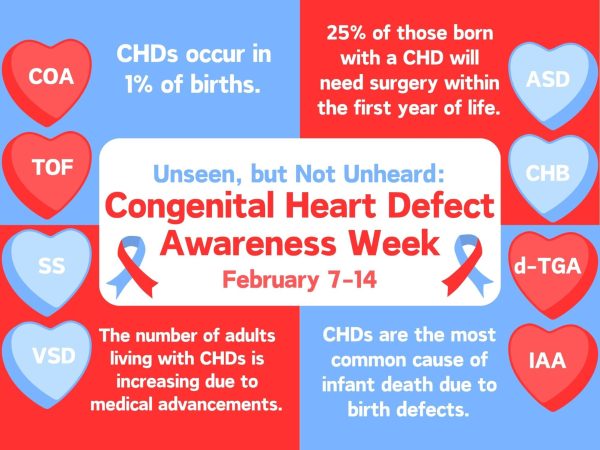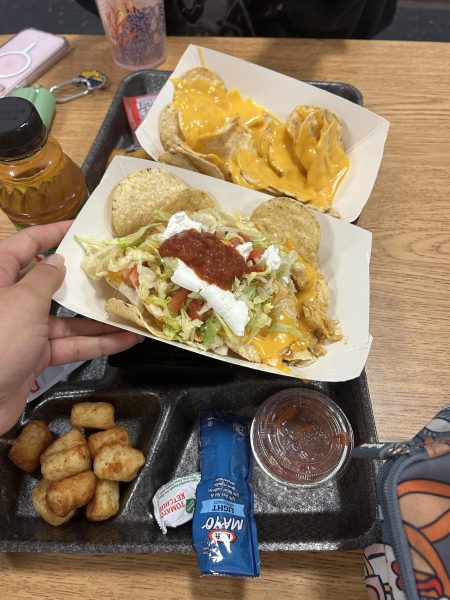Why Should Cambridge Students Care about the Dakota Access Pipeline?
Opinion
I was sitting on this chocolate brown leather sectional in the living room of my house.
The leather was soft under my toes and my maroon sweats were reminding me of the relaxed energy going through the room.
My mom felt a vibration from the phone in her hand. It was lit up with a notification from 11Alive News saying, “Breaking News: Standing Rock tribe says Army will halt pipeline.”
I took the phone out of her hand and jumped into the air, yelling hooray and shouting my happiness.
I have been following this standoff since early Sept when I was looking for an article to discuss in class.
Many of you may not know what pipeline I am referring to, or what the Standing Rock tribe is.
So, if you did get a notification on your phone about this defeat, you probably swiped left and ignored this important moment in history.
Let’s talk about it, then: What is this oil pipeline? And, more importantly, why should we, high school students in Milton, actually care?
Dakota Access, an energy company, wants to put an underground oil pipeline in the Midwest. The 1,168-mile pipeline would traverse four states: North and South Dakota, Iowa and Illinois. According to the US Geological Survey, there are an estimated 7.4 billion barrels of undiscovered oil in that area.
According to the parent company of Dakota Access, the pipeline would transport about 470,000 barrels of crude oil per day. The company also said that this would lessen our country’s dependence on oil from unstable nations.
This all sounds great, right? Less oil from foreign nations, more money for the Midwestern region. It’s great.
Until you learn that the pipeline will be right outside the boundaries of a Native American tribe, the reservation of the Standing Rock Sioux. The pipeline will run right next to it and probably through sacred land that has been theirs for many, many years.
Now, the whole dynamic changes, which is why there have been protests since August in North Dakota.
There are two major reasons for this: water and land.
In a New York Times article featuring the voices of Native Americans from across the country, Whitney Custer, a Cheyenne Native American, said, “This water is sacred, and this water is important.”
The Native Americans out in North Dakota had started to refer to themselves as the water protectors. The reason for this being that oil pipelines have been known to leak into the water supply, and harm drinking water.
For many of the Native Americans featured in the New York Times piece, this was problematic, because, as Custer said before, it is sacred.
According to CNN, similar to land, water is an important part of the Sioux culture. David Archambault II, the chairman of the Standing Rock Sioux, said, “We say ‘mni wiconi’: Water is life.”
Land, in the Sioux culture, is important, because it is the place they protect. It is their small fraction of Mother Earth, and the pipeline would cut into that.
The land that the pipeline would traverse through would also go through sacred prayer sites, ones that are still used today, according to CNN.
Land is not a symbol of wealth for the Sioux; rather, it is a religion and it is central to their tragic history. According to CNN, the pipeline would have cut through sacred Sioux burial grounds.
The sites the tribe was trying to protect were similar to ones that have become national monuments or state and national parks, which is why it didn’t make sense that the pipeline was being built there.
Yet, the country would so easily build over their historic land, reserved for them by the Fort Laramie treaty, signed in 1851, according to CNN.
But, on Sunday, this all changed. The Army Corps of Engineers realized that their decision was too hasty. The government decided to take another look at the situation and find a new route for the pipeline, one that no longer harms sacred land or the water of these strong Native American people.
This, is a monumental victory, one that will be in history books someday.
But, again, I ask, why should you care?
We go to a school where point one percent of students identify as American Indian or Alaskan Native. We are 72 percent white, with a 28 percent rate of minority students, according to US News and World Report.
Why should we be aware of these Native Americans fighting for their right to land in North Dakota, a state most students probably could not find on a map?
Why do we learn about the Civil Rights Movements of the 1960s? Why do we learn about the internment camps that housed thousands of Japanese Americans during WWII? Why do we learn about the race riots in Los Angeles during the 1990s?
History is being made around us every day. The little actions that are done are all a part of something important.
While many of us have no connection to Native American history, or even comprehend the terrible treatment they have experienced since people came to our country, it is important for us to know what is going on.
As the future, we will be in charge of raising, creating and educating a future generation of people, and it will be important for us to not allow history to repeat itself. We must know what has happened in our world.
Think about it this way, let’s say you grow up to be a teacher.
You are teaching freshman English and let’s say you are reading “To Kill A Mockingbird” by Harper Lee to your class of young students.
The depth of the novel might not reach them until you explain further. You show them examples of real history. You show them the race riots.
The Scottsboro Boys trial. You explain to them your experience with learning about this when you were in school.
You share with them the Black Lives Matter movement that existed when you were in high school. You teach them the reality. You show them how the world can be cruel, but you guide them to be the change.
It reaches into other areas, too. Some of you might become parents, doctors or managers. There will be lessons we learn from not only history but the present day that will affect how we handle these important jobs.
As a parent, you might try to teach your child to be kind to all colors of skin. As a young doctor, you might choose to operate pro bono, because you understand the historic mistreatment of those who are socioeconomically less. As a manager, you might try to be decisive, but fair in all your interactions.
It doesn’t stop at high school as we must become informed. We must be aware when injustice is happening in our country.
If we do not know about these things, or the history, or any of it, then we cannot change things. We cannot start to make this world an even better place than it already is.
We can have many more victories for the people of this world, no matter what race, religion, gender or sexuality.
But, it starts with us.
Halle Larson has been a part of the Bear Witness for four years, and was previously the Features Editor. She has a great love for writing, literature and...




